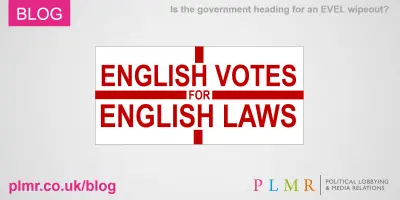On 26th May 1975 legendary daredevil and motorcycle stuntman Evel Knievel came to London to attempt another of the death-defying stunts he had become world famous for. At Wembley Stadium, in front of a crowd of 90,000 expectant fans, the American icon from Butte, Montana lined up to jump over 13 buses on his custom Harley Davidson. Unfortunately, Knievel’s attempt was a failure. He crashed out on landing, breaking his pelvis in the process, and declared he’d ‘never, ever jump again.’ (Less than five months later he was back on his bike, successfully jumping over 14 Greyhound buses in Cincinnati).
Today, the somewhat less legendary Leader of the House of Commons, Chris Grayling announced another Evel stunt, this time in the House of Commons. EVEL – or English votes for English laws – is the government’s attempt to address the West Lothian question, an issue that has been an open sore for many Conservative backbenchers for years. The West Lothian question asks whether MPs from Scotland, Northern Ireland and Wales should still be able to vote on matters that only pertain to England, now that English MPs can no longer vote on matters that have been devolved to the Scottish Parliament or the Northern Ireland or Welsh Assemblies.
For years there was a tacit agreement that this issue would remain unaddressed, for fear it stoked nationalist sentiments and caused damage to the Union. However, as calls for Scottish independence in particular grew louder the question began to be raised more frequently and, the day after Scotland voted to remain in the Union, Prime Minister David Cameron vowed that the EVEL issue would be addressed.
Hence Grayling’s announcement that changes will be made to the standing orders that dictate how Parliament conducts its business, to give MPs from English constituencies a veto over laws that only affect England. The announcement has provoked outrage amongst the opposition parties. Shadow Commons leader Angela Eagle claimed the plans were a ‘cynical’ attempt by the government to manipulate procedure to ‘manufacture’ a larger majority. SNP MP Peter Wilshart has described the proposals as ‘unworkable garbage’ that would effectively make Scottish MPs ‘second class’. The response on social media has been equally fierce, with many on both sides of the fence agreeing the proposals will only strengthen calls for Scottish independence.
The government may simply be attempting to answer the West Lothian question, but the way it has gone about doing so seems pretty risky. The plans will be debated on 15th July, but their impact may resonate far beyond the Palace of Westminster. Those of us who support the Union will be hoping they do not precipitate a Knievel-style wipeout further down the road.




